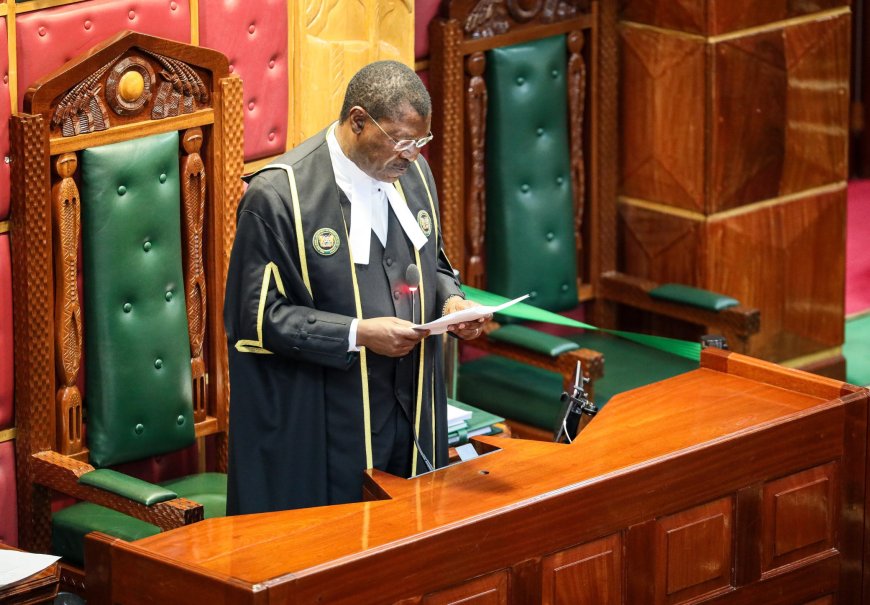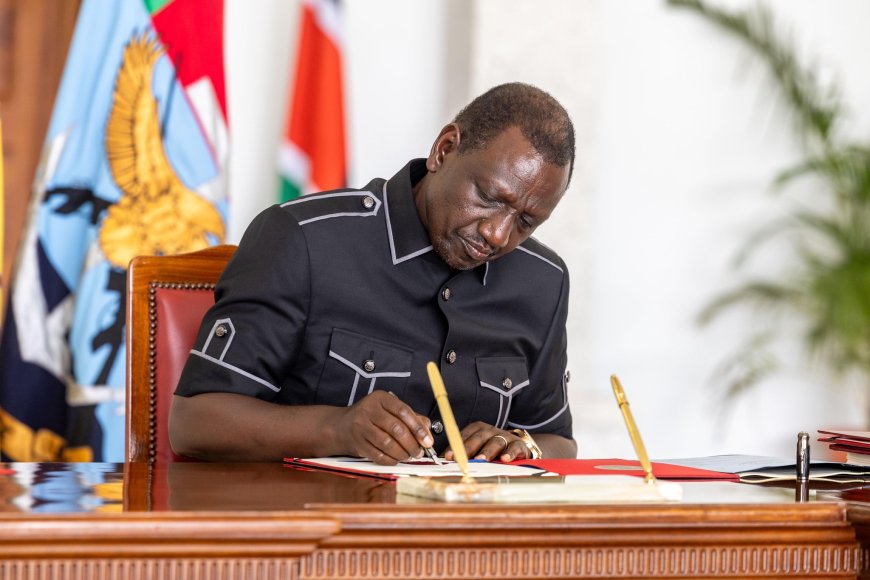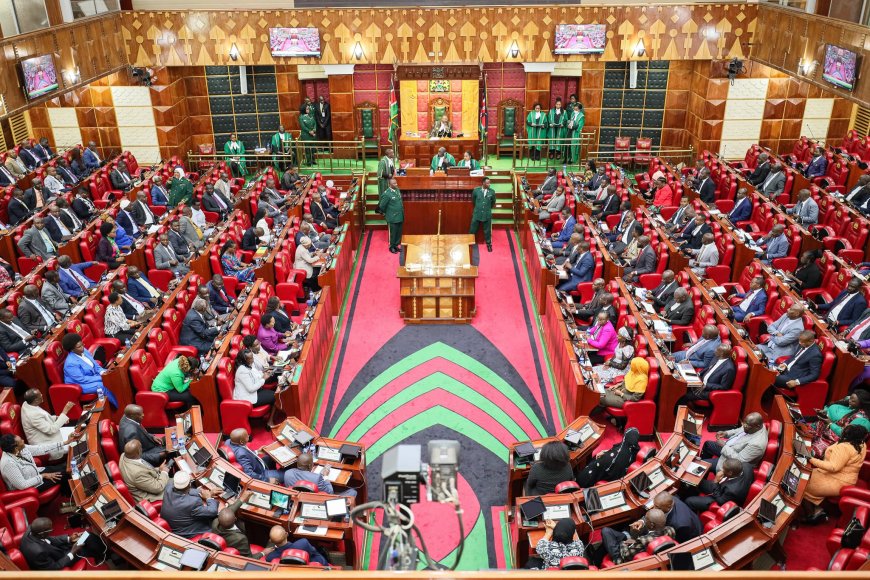Wetangula Reveals Next Steps After Ruto Rejects Finance Bill 2024
Wetangula on Thursday, June 27 indicated that he had referred the Memorandum to the Departmental Committee on Finance and National Planning.

Moses Wetangula, the Speaker of the National Assembly has issued a Notification to the Members and the general public in relation to President William Ruto's Memorandum which saw the rejection of the Finance Bill, 2024.
In the Notification, Wetangula on Thursday, June 27 indicated that he had referred the Memorandum to the Departmental Committee on Finance and National Planning.
The notice came after the National Assembly on Tuesday, June 25 passed the Finance Bill 2024 after the third reading, after 195 Members of Parliament voted to pass it while 106 others rejected it and three votes were spoiled, paving the way for Ruto to assent it into law before Ruto's announcement that he rejected the Bill.
"Further whereas, in accordance with Article 115(1)(b) of the Constitution, H.E. the President, vide a Memorandum dated 26th June 2024, referred the Finance Bill, 2024 back to the National Assembly for reconsideration with reservations recommending deletion of all clauses of the Bill.

President William Ruto signs into law the Statute Law (Miscellaneous Amendments) Bill, 2024 on April 24, 2024. /PCS
"Cognizant that, the President's Memorandum constitutes a rejection of the bill in its entirety; and that the decision is informed by the need to reflect the voice of the people of Kenya who have rejected the Bill," the statement read in part.
The notification however revealed that in accordance with Article 115(4)(a) of the Constitution, any Member desirous of negating the President's reservations or reviving any of the 69 Clauses of the Bill is required to marshal the votes of at least two-thirds (2/3) of the Members of the National Assembly, being 233 MPs.
Furthermore, Standing Order 42(3) provides that a Message received from the President at a time when the House is not in session is to be transmitted to every Member and reported to the House on the day the House next sits. Currently, the House is on recess until July 23, 2024.
As a result, Wetangula referred President Ruto's Memorandum of Referral in respect of the Finance Bill (National Assembly Bill No. 30 of 2024) to the Departmental Committee on Finance and National Planning.
"That the Committee is required to expeditiously commence consideration of the President's Memorandum, its reservations and recommendation, and report to the House at the next regular sitting upon its resumption; and that the Clerk is directed to circulate this Notification to all Members of the National Assembly, and accordingly facilitate the Committee to undertake the exercise; and prepare the necessary Message for formal conveyance to the House upon its resumption," the statement added.
Constitutional Procedure for Returning a Bill
According to Kenya's constitution, the process of returning a bill to Parliament involves several critical steps:
After a bill is passed by Parliament, it is presented to the President for assent. The President has 14 days to either assent to the bill or refer it back to Parliament with a memorandum outlining specific concerns.
In this case, President Ruto has exercised his constitutional right to refer the Finance Bill 2024 back to Parliament. The memorandum should detail the particular clauses or provisions the President disagrees with and suggest necessary amendments.
Upon receiving the President's memorandum, Parliament must reconsider the bill. According to Article 115 of the Constitution, if the President refers a bill back, Parliament can either accept the proposed amendments or reject them.
If Parliament agrees with the President's recommendations, the bill is amended accordingly and sent back to the President for assent. However, if Parliament disagrees with the President's amendments, it can override the President's veto.
To do this, the National Assembly must pass the bill again with a two-thirds majority. If successful, the bill becomes law even without the President's assent.

A bird's eye view of Parliament as of June 6, 2024. /PARLIAMENT OF KENYA
Since the bill cannot be withdrawn at this stage, in his memorandum, President Ruto directed the National Assembly to delete all clauses in the bill.
"Taking into consideration the widespread expression of dissatisfaction by members of the public on the contents of the Finance Bill, 2024
"Now therefore, in exercise of the powers conferred to me by Article 115(1)(b) of the Constitution and having reservations on the contents of the Bill in its entirety, I decline to assent to the Finance Bill, 2024, and refer the bill for reconsideration by the National Assembly with the recommendation for the deletion of all the clauses thereof," Ruto said in his memorandum.






